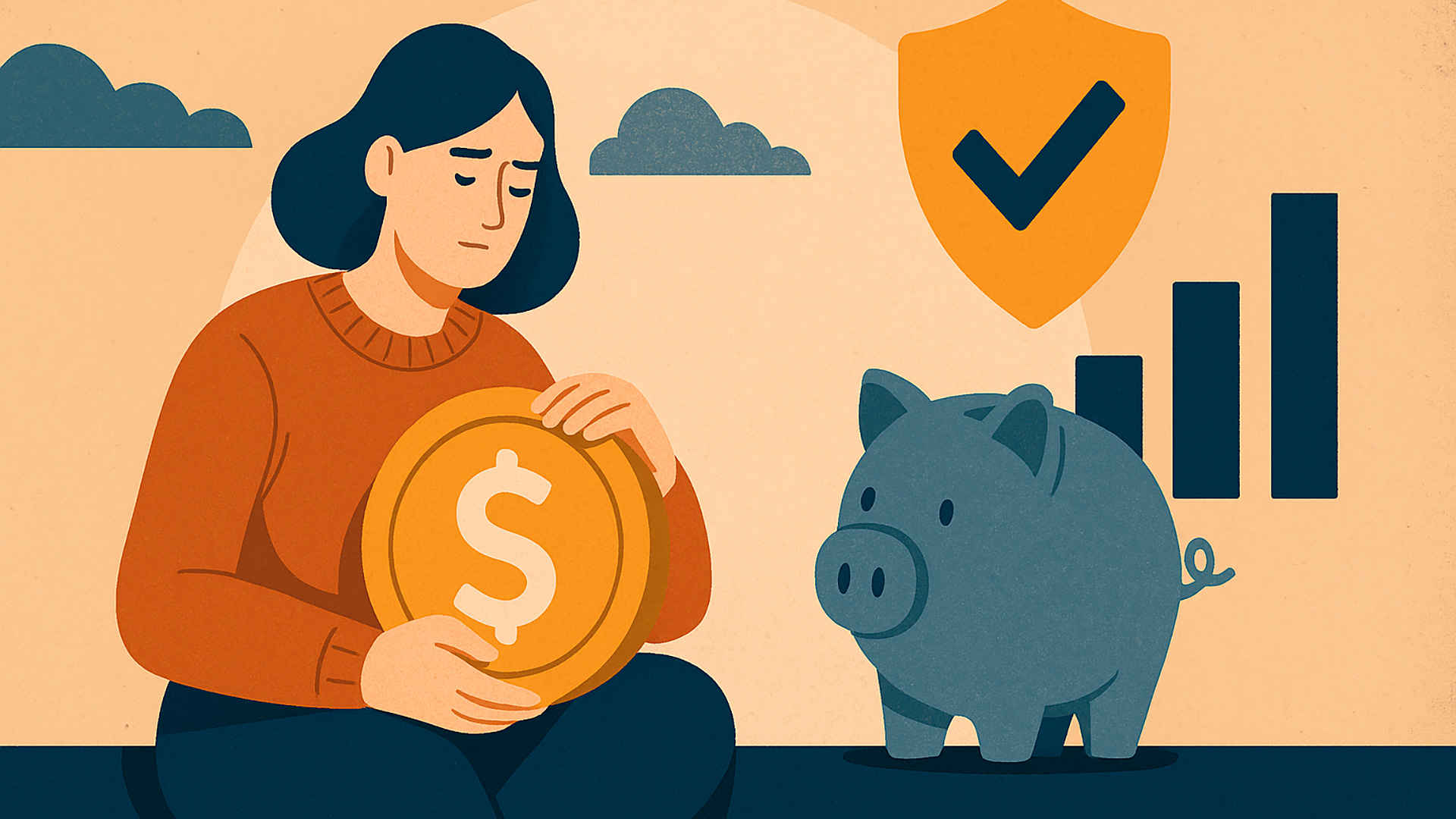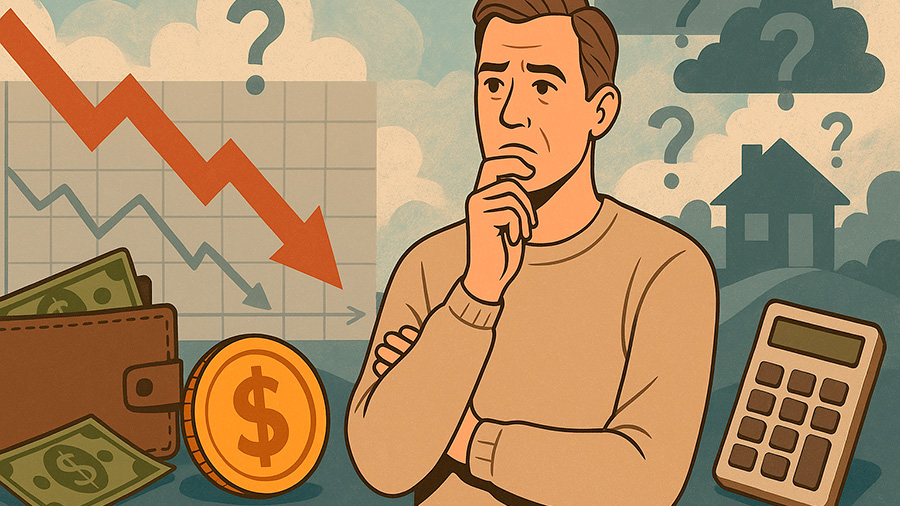Steady Hands in Shifting Times: How to Stay Financially Grounded When the Economy Feels Shaky

Every economic era has its storms — recessions, layoffs, inflation spikes, market drops, political tension. Yet, while the headlines keep changing, one principle stays timeless: stability begins with mindset. True financial confidence isn’t about how much money you make; it’s about how much control you have over your money. In uncertain times, that control becomes your anchor — the calm amid chaos. Whether you’re worried about job security, savings, or rising costs, understanding how to build confidence with your finances can turn fear into clarity and anxiety into action.
What Financial Confidence Really Means
When people hear the phrase “financial confidence,” they often think of wealth. But confidence is different from riches — it’s not measured by dollars, but by direction. Someone earning $60,000 with a plan can feel more secure than someone earning twice that without one. Financial confidence is knowing where your money goes, having a cushion for the unexpected, and trusting your ability to recover from setbacks. It’s not about eliminating uncertainty; it’s about navigating it without panic.
Confidence comes from preparation. You don’t need to predict the next economic downturn — you just need to know that you’ll be okay when it arrives. That mindset is built through discipline, foresight, and small, consistent steps that strengthen your financial foundation over time.
Building a Safety Net That Actually Protects You
When the world feels unstable, your safety net is your first line of defense. This “financial cushion” — an emergency fund, insurance, or backup income plan — separates those who stress about money from those who sleep peacefully. It’s what lets you take a deep breath when the paycheck is delayed or prices jump overnight.
How Big Should an Emergency Fund Be?
| Life Situation | Recommended Emergency Fund | Why It Matters |
|---|---|---|
| Single with stable job | 3 months of expenses | Covers job loss or medical bills |
| Family with dependents | 6 months of expenses | More protection for unexpected costs |
| Freelancer or gig worker | 6–9 months of expenses | Inconsistent income requires longer buffer |
| Retired or near retirement | 12 months of expenses | Gives time to adjust investments safely |
The goal isn’t perfection — it’s progress. Even saving $500 can reduce the urge to rely on credit cards when an emergency hits. Every dollar in that fund buys you peace of mind, one layer of financial confidence at a time.
Managing Money When the Economy Feels Volatile
Economic uncertainty changes how we view spending. It makes people more cautious — and often more reactive. But fear-based decisions can be as damaging as reckless ones. The key is to stay strategic, not scared.
Three Core Habits to Strengthen Stability
- Track your cash flow: Write down or automate every expense. Awareness creates control.
- Cut friction, not joy: Eliminate wasteful spending (subscriptions, unused memberships), but keep the things that genuinely improve your quality of life.
- Automate savings: Treat saving as a bill you must pay — one that protects your future self.
These habits create momentum. The more control you build, the more confidence you feel. You start seeing financial discipline not as a restriction, but as freedom — because every wise decision today becomes a cushion tomorrow.
Adjusting Your Mindset During Uncertainty
When the economy wobbles, fear spreads fast. We see layoffs, market crashes, and inflation, and our instincts kick in: hold, hoard, panic. Yet, emotional reactions often cost us more than financial ones. Confidence, by contrast, grows from steady, informed behavior. The calm person doesn’t ignore risk — they understand it and plan around it.
Ask yourself: what’s within my control? You can’t stop inflation, but you can build habits that protect you from it — like diversifying income, tracking expenses, and keeping a long-term investment view. You can’t predict job cuts, but you can keep your resume updated and maintain an emergency fund. Shifting from fear to focus is where financial confidence begins to bloom.

Smart Use of Credit During Tough Times
Credit can be a friend or foe during instability. Used wisely, it smooths over short-term disruptions; used carelessly, it amplifies stress. Understanding your relationship with credit can keep you stable when others spiral.
Tips for Responsible Credit Management
- Keep utilization below 30% to show lenders you’re disciplined.
- Pay more than the minimum balance whenever possible.
- Avoid taking on new debt just to “feel safe” — credit is a bridge, not a backup plan.
- Maintain communication with creditors if financial hardship strikes — many offer temporary relief programs.
Credit is a tool, not a trap. Using it strategically reinforces your financial confidence and ensures your credit score works for you, not against you, when the time comes for major life decisions like buying a home or refinancing a loan.
Planning Is the Antidote to Panic
Planning doesn’t mean predicting every outcome. It means having a roadmap flexible enough to handle surprises. Whether the economy grows or contracts, your foundation remains the same: earn, save, protect, and invest with purpose.
| Focus Area | Practical Step | Confidence Benefit |
|---|---|---|
| Income | Develop a side skill or backup source of income | Reduces dependency on one job |
| Expenses | Adopt a 50/30/20 budget (needs/wants/savings) | Maintains balance and predictability |
| Debt | Pay down high-interest loans first | Creates mental and financial breathing space |
| Investments | Stay consistent; don’t sell in panic | Preserves long-term growth potential |
Even a basic plan gives you confidence because it replaces chaos with direction. You know what to do when things get rough — and that’s what keeps panic at bay.
The Emotional Side of Money Management
Uncertainty doesn’t just affect your wallet — it affects your mind. Financial stress can lead to sleepless nights, anxiety, and decision fatigue. The way to counter that is not by ignoring emotions, but by working with them. Confidence grows when you understand your triggers and set boundaries around them.
If checking your portfolio daily causes anxiety, reduce it to once a month. If budgeting feels overwhelming, start small — track one category, like dining out. Financial confidence grows like fitness: gradually, through repetition and patience. Every small win builds your resilience for the next challenge.
Turning Uncertainty Into Opportunity
Periods of instability, while stressful, also present rare chances to grow. Markets drop, but that means assets can be bought cheaper. Jobs change, but that can push you toward better skills or careers. Confidence doesn’t mean ignoring challenges — it means seeing them as temporary hurdles, not roadblocks.
Mindset Shifts That Build Strength
- See volatility as part of the financial cycle, not a permanent crisis.
- View savings as empowerment, not sacrifice.
- Focus on what you can control — income, habits, knowledge — and release what you can’t.
When you start thinking this way, uncertainty stops being an enemy and becomes a teacher. The most confident people aren’t the ones untouched by chaos; they’re the ones who have prepared for it and know they’ll recover no matter what happens.
Conclusion: Calm Is a Financial Strategy
Economic uncertainty is here to stay — it just changes its shape. But with preparation, discipline, and emotional balance, you can thrive through it. Real financial confidence comes from consistency: saving before you spend, thinking before you borrow, planning before you panic. The world may be unpredictable, but your stability doesn’t have to be. With the right mindset and systems in place, you’re not just surviving tough times — you’re mastering them.
